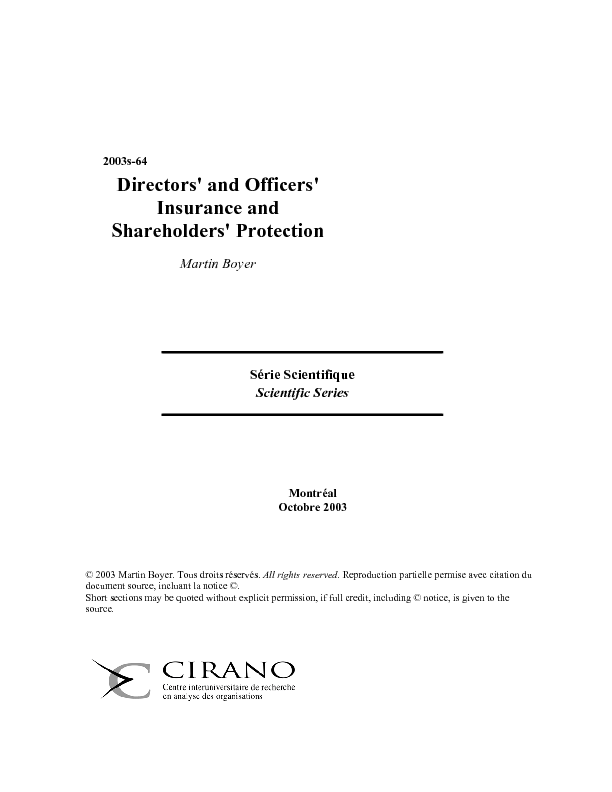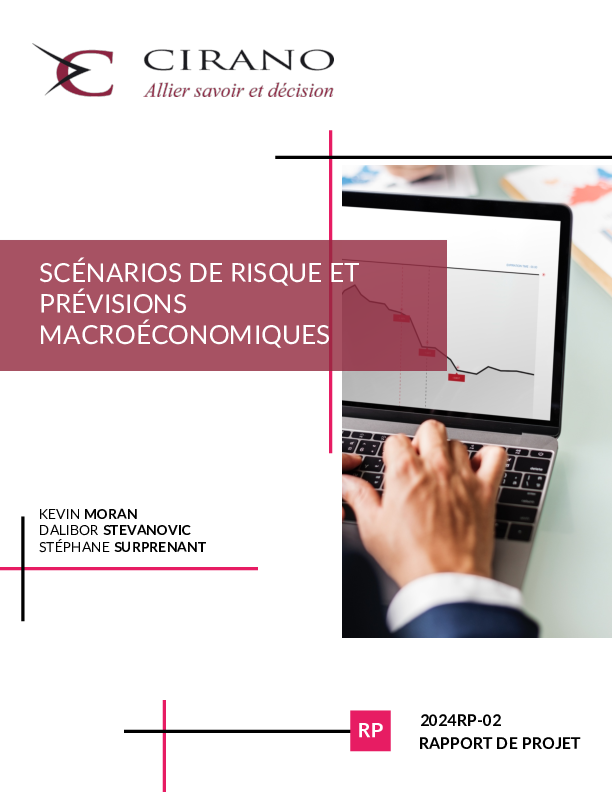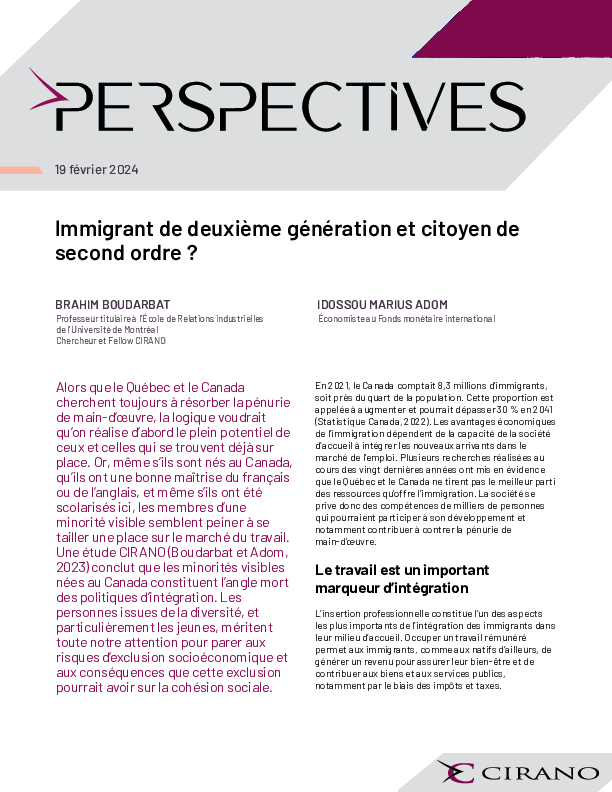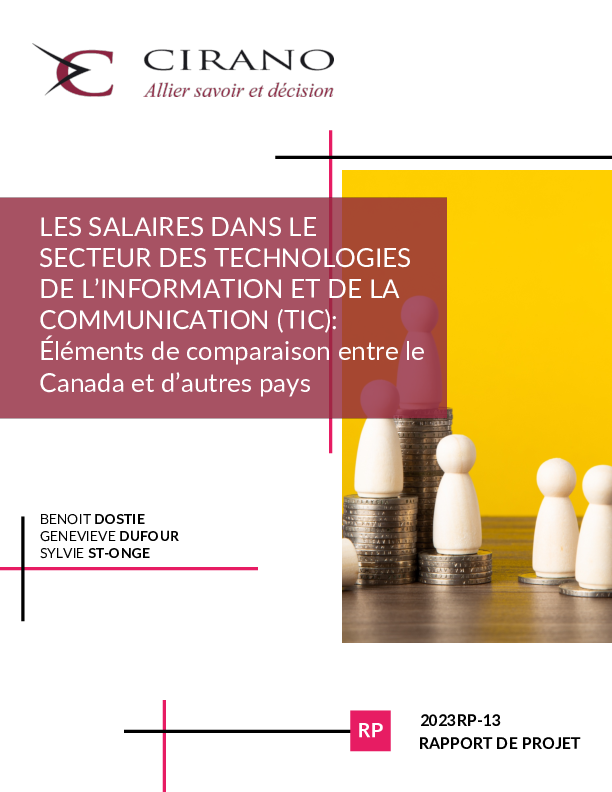Directors' and Officers' Insurance and Shareholders' Protection
Corporate directors are liable for the corporation's actions as well as their own. Strangely, and by far, the most likely plaintiffs in a lawsuit against corporate directors are the shareholders who appointed them in the first place. As a result, directors often require protection so that their own personal wealth is not expropriated in the event of a good faith error. There are three ways to protect a director's wealth: Corporate indemnification plans, Limited liability provisions and Directors' and Officers (D&O) insurance policies. Of the three types of protection, D&O insurance is arguably the strangest not because shareholders purchase it to protect directors in case of a lawsuit, but because it also protects shareholders. Using an original database, we test a set of hypotheses that should determine the demand for D&O insurance. Our analysis suggests that the D&O insurance demand is best explained as part of the directors' compensation package, managerial signalling and shareholders' wealth protection. D&O insurance also appears to be a substitute for financial institution monitoring. Surprisingly, managerial risk aversion and financial distress do not seem to play important roles. Our results lead us to conclude that D&O insurance is not designed to protect the directors' personal wealth as much as it is designed to protect the shareholders'. In that sense, our paper offers an original approach to one of the many fundamental questions in finance: What determines corporate risk management practices?
[ - ]




